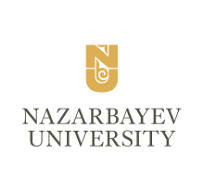
Educate to empower your students and prevent harassment
You may also like
In our commitment to foster a culture of zero tolerance towards harassment, we started the Empower and Prevent: Principles of Consent and Harassment Prevention course, the first university-level compulsory course in Kazakhstan that educates students about different forms of harassment, understanding consent and the important role bystanders play in keeping the campus secure.
- Creating safe spaces for students to talk about financial difficulties
- How to keep LGBTQ+ students safe when studying abroad
- Safely teaching foreign students facing censorship
Empower and Prevent is structured around four online modules, delivered via the Articulate 360 platform, which ensures engaging and interactive teaching content. Each module is designed to address specific aspects of harassment prevention:
- Understanding harassment and setting boundaries: In this module, students learn to identify and respond to various forms of harassment, emphasising the importance of personal boundaries. Through interactive scenarios, the module challenges students to apply what they learn.
- Example of the interactive scenario in Module 1: Imagine you’re at a university event. You notice a fellow student, Zhanibek, complimenting another student, Aida, on her appearance in a way that seems to make her uncomfortable. Zhanibek later sends Aida repeated messages on social media, asking to meet up, despite her showing no interest in him. This scenario asks, “Does Zhanibek’s behaviour constitute harassment?” Students learn to distinguish between different forms of harassment, understanding the need for consent and respect for personal boundaries.
- Learning about consent: This module discusses the complexities of consent, teaching students to recognise and respect it in all interactions, and to identify “red flags”.
- Example of the interactive scenario in Module 2: During a party scenario, Timur persists in making advances after being declined. This scenario teaches the students the importance of recognising and respecting clear, affirmative consent. It also helps them identify coercion, understand consent’s voluntary nature, and communicate discomfort clearly.
- Understanding the anti-harassment policy and resources at Nazarbayev University: This module provides an in-depth look at NU’s anti-harassment policy, explaining the reporting procedures and the support systems available for harassment survivors. It includes simulations of reporting processes to give students a clear understanding of how to seek help and support.
- Example of the interactive scenario in Module 3: A role-playing simulation where a student, Aisha, decides to report harassment. This interactive setup guides students through the reporting process, demonstrating how to access university support systems and understand the consequences of policy violations.
- Considering the role of bystanders: The final module emphasises the critical role bystanders play in preventing harassment. Through role-playing simulations, students learn safe and effective intervention techniques and are encouraged to support a culture of respect and safety.
- Example of the interactive scenario in Module 4: In a party scenario, students assess a situation where a bystander notices potentially harmful behaviour towards an intoxicated student. This interactive question teaches students safe intervention strategies and the importance of bystander roles in preventing harassment.
The course incorporates interactive elements such as educational quizzes, scenario-based activities and real-life simulations to create a dynamic learning environment. Each module concludes with assessments that require an 80 per cent pass rate, to reinforce the seriousness of the content and ensure comprehension.
The Empower and Prevent course is an integral part of our commitment to a zero-tolerance policy towards harassment. By providing first-year students with the knowledge and tools to recognise, prevent and respond to harassment, we are not only addressing these issues head-on, but are also promoting a supportive campus culture that respects and upholds the dignity of every community member.
Dinara Pisareva is an associate professor and Nikita Durnev is an undergraduate student at Nazarbayev University.
If you would like advice and insight from academics and university staff delivered direct to your inbox each week, sign up for the THE Campus newsletter.




